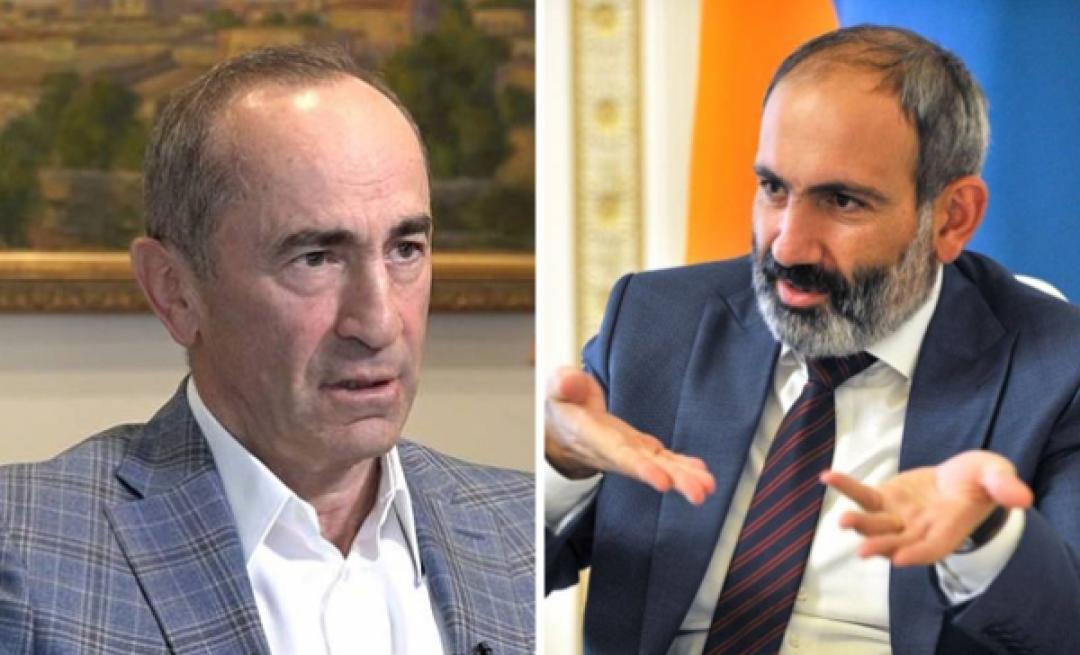
Political situation in Armenia: Pashinyan withdraws motion for snap elections; Kocharyan announces return to big politics

On 7 February, the ruling Armenian My Step faction spoke out against holding fresh parliamentary elections to resolve the political crisis in Armenia.
“As far as the parliamentary and the non-parliamentary opposition did not formulate public demand for holding snap elections it means there is no such demand,” stated the My Step faction head Lilit Makunts. “For us the implementation of the opposition’s demand… to change of power is possible exclusively through elections and this is why we said let’s discuss the variant of snap elections,” she added.
In regards to future actions Makunts said that the ruling team would continue implementing the roadmap to overcome the crisis (Caucasus Watch reported) and while tallying votes would they discuss the necessity of snap elections. She also noted that their communications with citizens did not convey signs that there is a demand for snap elections.
While responding to the remark that there were opinions that the ruling force was afraid of conducting snap elections and therefore was backing away from the idea, Makunts said that their statements were not made in the context of fear, because the proposal to hold snap parliamentary elections was voiced by My Step. And to a reporter's question as to the veracity of the information that polls were conducted and as a result, the ruling force decided not to go for these elections, Makunts answered that here were “various sociological polls at various stages, moreover, by many different organisations, which were not only sent to the ruling team, but also to the opposition.”
The opposition expressed a different opinion regarding this move from the ruling team. “There are three main reasons to abandon the idea of snap elections. First, they have arrived at the understanding that they have practically no chances of reproduction through polls–that it is just impossible. Secondly, they see that they will have problems with their team, as most of the lawmakers who found themselves in parliament by fortune will lose their mandate. Thirdly, they believe that it is still possible to keep on cheating and silencing the people and easily digest all that,” stated Ishkhan Saghatelyan from Armenian Revolutionary Federation-Dashnaktsutyun.
The ARF-D member said that he is certain that the authorities had conducted a survey and that this was enough to not go through snap elections and try to maintain power by force. He added that the only way for the authorities to maintain power is to strengthen their power, try to repress the judiciary and have strong positions within power structures, but will fail since they don’t assess the situation correctly.
Saghatelyan was also asked if the opposition demands for creating a caretaker government and holding elections a year later stayed the same following the meeting of the opposition leaders on 2 February (Caucasus Watch reported). “I want to remind you once again that no political force – including a parliamentary one – ever opposed to snap elections while outlining also the very accurate roadmap, that is the resignation, the formation of an interim government and the conduct of snap elections. The opposition reaffirmed its demand, agenda and road map about 10 days ago. Hence. nothing has changed in our approaches. The struggle is continuing in all the directions; we are scheduling a big demonstration on 20 February. There will be a procession, rallies and different disobedience campaigns. I have to repeat myself again: if the ruling team believe they will manage to cover up their treachery with a false agenda, distracting the society and maintaining grip on power, they are mistaken,” he replied.
Two days earlier, Armenia’s second President Robert Kocharyan announced that he would return to “big politics” following the political turmoil in Armenia. He emphasised that there was a great need for “comprehensible and strong individuals” in Armenia, and therefore the new parliamentary elections would be bipolar—between the current government and their opponents.
“People have tasted the fruits of populism, they have tasted the results of colour revolutions and the work of inexperienced people,” Kocharyan said. “The pendulum has moved in the opposite direction, and now there is a need for completely different characters, completely different teams—a team of professional leaders, people with will who are able to tell the truth by looking into the eyes of their opponents; and there is such a [political] team in Armenia.”
Kocharyan also called for a full-fledged regional integration between Armenia and Russia in order to bring prosperity to the South Caucasus country. “The world is being regionalised. Global processes are replaced by certain regional integration processes. I think Armenia should very seriously think about deeper interaction with Russia - much deeper than it is now,” he said. Armenia’s second president did not offer further information about what a “much deeper” integration would be like, nor comment if he envisioned a union-state on the lines currently proposed by the Kremlin between Russia and Belarus. He only envisaged that his proposal was not “about the restoration of the Soviet Union.”
See Also


Armenia Records 5.9% GDP Growth in 2024, Missing 7% Goal

Yerevan Balances Strategic Ties with Both US and Russia, Says Foreign Minister

FM Mirzoyan: Peace Deal with Azerbaijan Is Within Reach

Pashinyan and Erdogan Hold Call, Reaffirm Commitment to Ongoing Dialogue

